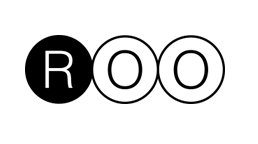Psychology and Safe space of and for remote teams
2020 and the new image of remote work
2020 has surely been a year that has revolutionised the way we work. In recent pre-pandemic times, “work from home”, “remote work” and such concepts have become trend words, conveying the somewhat novel idea that we don’t have to physically be in the same place as our employer and our team. Before our internet age, this was unthinkable. As our societies have become more global than ever, our choice of where we live doesn’t always coincide with where our employer is located. Prior to the time when Covid-19 forced us to work from home, the idea of working remotely was often considered a privilege and somewhat out of the ordinary. This privilege has now been challenged within a short time and is in the process of turning into a right and a standard.
We at R-O-O have worked remotely from the beginning. This has been a conscious choice to allow everyone working in our team to follow their full potential as professional and private people. For us, working remotely ultimately means living a self-determined life, and one that does not feel like a compromise. It gives us the freedom to work according to our personal biorhythms, to create our own preferred physical environment which is conducive to our creativity and productivity, and it allows us not only to be productive professionals, but to have fulfilling private lives too.
This sounds like the solution for all work-life-balance dilemmas, but is it really a fit-for-all situation?
To put it straight: your business idea would remain a mere abstraction if you did not find the right people to execute it with you, so building a team is crucial. But is it really a sustainable investment when you are building your project from scratch?
Recruiting and hiring the right people can be a mammoth task that doesn’t only drain your time and energy, but your financial resources as well. A smart business idea requires quick execution, but by the time you find the right techies and recruit a team that understands your project and aligns with your vision, your idea might already be outdated. Not only that: hiring a traditional team comes with many additional costs such as recruiting costs (that HR expert who you need to hire for the recruiting process), infrastructure costs (the office rent, the furniture, the tech), travel costs and hiring costs (including insurances, bonuses etc.)
The list of expenses is long and if you don’t run a firmly established company yet, your investment might get drained before you even started. Let’s face it, building an efficient team from scratch can be organisationally and administratively overwhelming.You are past the ideation stage for your project and are ready to implement, but you don’t want to get hung up on administering the complex set-up of a company. And that’s where our remote scalable teams come in.
Remote teams are the answer to low upfront investment What are remote teams? Remote teams are custom made teams that jump into building your project as soon as you approach Room of Opportunity and trust us with this task. These teams are selected from our international pool of highly skilled and trusted IT developers to take on the tasks that are necessary to get your project ready for the market. We know that projects go through different processes that require different resources. This month you may only need three developers but next month you need fifteen? That is why at Room of Opportunity, we offer scalable teams that adjust to the changing needs of your projects. This ensures you a hassle free execution at low admin costs. Our international developers work on your project as per the actual needs.
When you would have hired full-time employees in a traditional business operation where the workload might not always require full-time work, with us you have the opportunity to pay for the work that is actually required.Because our developers all work from their own infrastructure, you save on office rent, infrastructure and all the other overhead costs. Saving on physical work space isn’t only financially more sustainable but also a lot greener.
A remote team also means a lot less commuting. Remote scalable teams provide you and your project the flexibility it needs to take off Saving on upfront investment through remote scalable teams ultimately means that you are free to get your project rolling without the headache of building an infrastructure from scratch. It saves you time to focus solely on your project and we help you in reaching your milestones fast and without unnecessary detours.
The benefit of our well-run remote scalable teams means that you only pay for the work that is actually required. Not only that: Our international team of experts comes with a whole array of fresh perspectives to help you develop the perfect product, accomplishing time-sensitive tasks for you on a 24/7 basis.
Different psychologies at work
For employers, remote work on the outset means a number of benefits: they can hire geographically distributed talent and reduce overhead expenses. For employees, working from home or from a co-working office, on the other hand, can increase their flexibility and save time and commuting costs. But the benefits of remote arrangements on productivity, creativity and social relations are also being contested, primarily because working remotely offers employees fewer opportunities to talk and network with their colleagues. Sharing a physical workspace with your colleagues has obvious benefits in building personal connections that contribute massively to a trust base between colleagues.
We are also prone to gaining insights and ideas from more informal encounters like in coffee breaks or cafeteria discussions, by meeting new people and being able to hold impromptu meetings. The challenge, therefore, lies in creating a virtual work environment that can be conducive to creativity and flow of information without the serendipitous and spontaneous encounters that have potential in the shared office.
Apart from the aforementioned challenges referring to productivity at work, there is also a h2 social component that affects not only the way we work, but also our broader mental wellbeing. Humans are social animals that thrive with the presence of others around them. 2020 was a crazy year when offices around the world shut and sent people to work from home, and it showed us how differently people perceive and experience remote work. While some are raving about the new circumstances because they have found time to develop new personal hobbies or spend more time with their families, others are suffering from what they perceive as confinement and social isolation.
Higher levels of loneliness can lead to irritability and negative emotions, like anxiety or depression, and these symptoms are largely connected with the inability to share problems with colleagues. An out-of-sight, out-of-mind attitude can lead to feelings of professional and personal isolation, which can take a serious toll on a person’s long term mental health and wellbeing.
Creating spaces for team reflections or feedback sessions could be a way to combat the loneliness challenge. It can also be helpful to encourage your staff to do regular personal 1-on-1 meetings with other colleagues to bring back a work culture that allowed for informal meetings outside the office.
The detachment challenge
On top of the challenge to foster human connection despite working remotely, lies another very real challenge: the challenge of knowing when to step away from work – a process of psychological detachment that is critical for being able to recover and regain energy. Unlike marking the end of the work day by the simple act of leaving the office, working from home does not automatically create these natural boundaries between oneself and our work. Working remotely, therefore, requires individuals to exert greater levels of self-control, which, if not managed well, can lead to stress and exhaustion.
Creating routines for oneself that mark the beginning and the end of a work day can be helpful methods to overcome the blur between your life and work. This could be as simple as leaving your house for a walk in the morning, as you would if you went to the office. Return home from the walk and start your work day. Again take a walk when your work day is over – as if you left the office to go home. This might seem a bit silly, but routines do wonders in structuring our day and this exercise can actually help in mentally separating your work life and your private life. Additionally to the routine effect, going out for some fresh air and moving your body has never harmed anyone – in fact it has become more important than ever.
Creating safe spaces for remote teams
The benefits of remote work certainly stand in contrast to its challenges and must be taken seriously from a human resources and managerial point of view. How can employers pick up on mental health related signals of their employees in the new digital work age? How would one know when a colleague is stressed, anxious or lonely or finds it hard to find a healthy balance between life and work? How can we build trust in remote work environments so that employees feel safe to express themselves when things are not feeling too good? And how can we offer our help to colleagues in distress?
These are questions that should be responded to with care by anyone who manages a team. Trust and personal connection are usually based on communication, and communication is key for any remote team to thrive. It certainly requires some unlearning of ‘old school’ face-to-face encounters, that enabled a spontaneous and intuitive personal connection. With new digital formats in place, there is a chance for conscious and more structured communication that enable regular team review and feedback sessions.
You May Also Like
How To Lower Your Upfront Investment Through Remote Teams
All entrepreneurs know the biggest challenge in starting a new project: to build an efficient team t
How to build a product with a remote team
Let’s assume, you have an excellent product or service idea which can add great value to your cust



